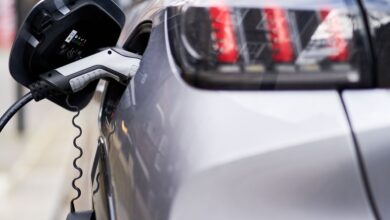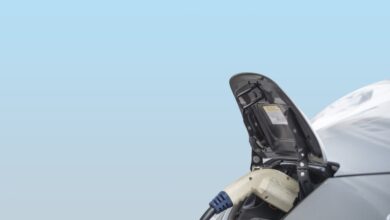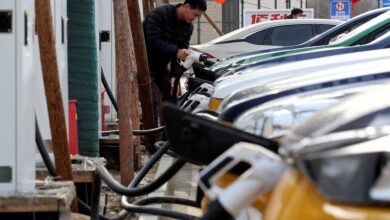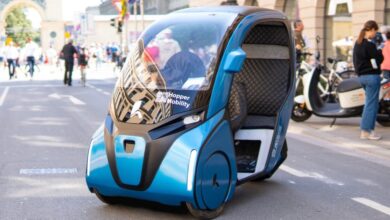Florida Roadway to Charge Electric Vehicles : CEG
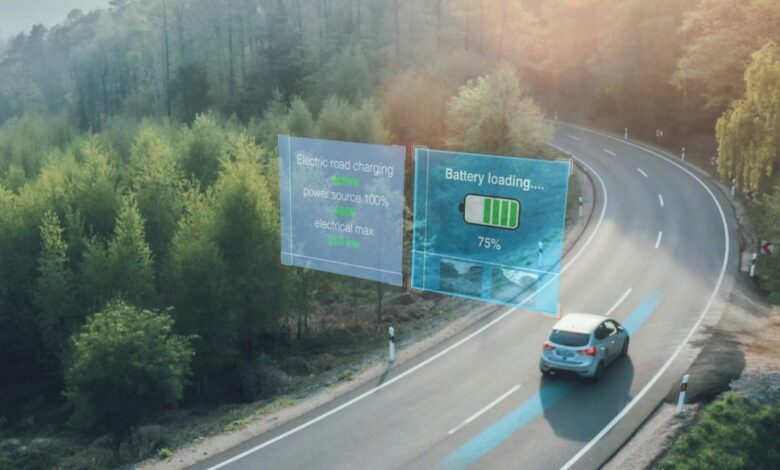
Shutterstock photo
Electric vehicle owners in central Florida may soon be able to charge their cars while driving, due to a roadway that will be equipped with an electrified charging element.
Based on technology used in armrests at Orlando’s airport that power phones wirelessly and stoves that heat skillets without burners, the coming toll expressway will be equipped to replenish batteries of electric cars and trucks as they zip along the state route.
The Central Florida Expressway Authority (CFX) is readying construction on a 4.4 mi.-long test road, designated as State Road 516, which will connect west Orange and south Lake counties, northwest of Walt Disney World.
Those two areas of the state are seeing a boom in growth, according to WESH-TV in nearby Orlando, but only a few roads connect the two counties.
On June 6, CFX’s governing board unanimously approved construction for the first phase of the project, the television station reported.
As part of the construction, a half-mile section of the roadway will be equipped with an electrified charging element. Tester vehicles will be outfitted with special receptors that detect when they drive over an electrified roadway and charge the vehicle.
In-road charging involves embedded coils of wire in the pavement that emit electromagnetic energy — a term for a wide spectrum that includes radio waves, light and x-rays — to just above the road’s surface.
Vehicles must have receiver plates attached to their underbodies to tap into the electromagnetic field and transfer its energy as electricity to a vehicle battery.
The State Road 516 system, taking up a footprint of about three-quarters of a mile, will provide charging at strengths up to 200 kilowatts (kW).
Sergio Perez of Enrx, a Norwegian company specializing in wireless energy and hired by the expressway authority, told the Orlando Sentinel earlier in the spring that 200 kW will be for heavy trucks, while cars will be fed less, likely 50 kW.
As a vehicle passes over in-road charging, it will receive enough electricity for the drive along the system — which, to illustrate the point, could be 1 mi. — and store enough electricity to drive another 2 mi.
Government agencies, vehicle manufacturers and road builders will have to get on the same page, which is what CFX hopes to achieve.
“Innovation is in our core,” said Glenn Pressimone, CFX’s chief of engineering. “We were not into solutions that are looking for problems, so to speak. We are open to innovation and to pilot projects.”
Pressimone said the challenge for his agency goes beyond mastering technology.
“We have to get it into a low-bid environment,” he said of how highway agencies award jobs.
“Part of what this project [aims to do] is to establish the standard of what goes into the road and the standard of what is built into cars,” he explained during an interview with the Sentinel. “This could definitely be a reality for us.”
The total estimated construction cost is $546 million when it is finished in late 2027, CFX noted.
Projects Aims for Innovation, Sustainability
Designed with innovation in mind, CFX is building State Road 516, also known as the Lake/Orange Expressway, to serve as a revolutionary testbed for electric in-vehicle charging. When it is completed, the proposed highway will be the most sustainable project ever delivered by CFX.
The state agency said the expressway, which is being constructed in three segments, will provide much-needed connectivity between Lake and Orange counties. State Road 516 also will help to meet the future travel needs of an area that has blossomed into a fast-growing residential, commercial, and medical hub. Additionally, the road will feature wildlife protection and a multi-use trail to deliver a world-class highway.
The pilot project, known as the Advancing Sustainability Through Powered Infrastructure for Roadway Electrification (ASPIRE), will demonstrate the feasibility of bringing a charge to both consumer and commercial electric vehicles moving at highway speeds through the electrification of the roadway.
The effort will install the wireless charging system within a 0.75-mi.-long portion of the travel lanes of Segment 1 of State Road 516.
CFX added that the system will only work on specially equipped vehicles that will be used for initial testing of the charging lane.
“This is the first brand new highway having the system from the beginning,” Perez said.
Other wireless, in-road charging projects are under way in Michigan, Indiana, California, Europe, Israel and elsewhere, but those efforts involve retrofitting existing roadways.
He told the Orlando newspaper that it will also be the most powerful such system ever built when operational.
In all, State Road 516 has been deemed a signature example of how to build roads that are easier on the environment and drivers. For instance, it will feature solar panels able to make nearly 1 megawatt of electricity needed to operate the highway.
The road will have an underpass 260 ft. long, 18 ft. wide and 8 ft high for wildlife migrating to and from the huge Green Swamp over which it passes, according to CFX. In addition, an adjoining recreational trail also is planned.
With an east-west alignment, State Road 516 will link the ever-growing suburbia along the north-south U.S. Highway 27 in Lake County with a section of Orlando’s expressway beltway, the north-south Fla. Highway 429 in Orange County.
At less than 5 mi. in length, the road is a tiny fraction of the expressway authority’s 125 mi. of highway.
But the future has to start somewhere, the Sentinel noted, and the road’s environmentally considerate capabilities will be operational and not merely experimental.
Nearly $14 million of the new road’s total construction cost is being spent to develop the electric vehicle charging project.
Highway Should Also Relieve Congestion in Area
Early estimates show daily traffic counts of as many as 21,000 vehicles during the first year, climbing to as many as 25,000 in its fifth year of operation.
“The 516 has been talked about and been planned for a number of years to relieve that east-west traffic in our region,” said Sean Parks, a Lake County commissioner and member of the expressway authority, in speaking with the Orlando news source. “It’s also been a part of our economic plan in south Lake County to put a jobs center on the map. Obviously, we have a lot of housing. This provides an opportunity for us to get us better connected to the region.”
While State Road 516 had percolated for years in the CFX’s project list, the decision to showcase it for sustainability was made more recently.
In 2018, Parks and former CFX head Laura Kelley visited “The Ray,” an 18-mi. piece of Interstate 85 south of Atlanta devoted to testing environmental and technology ideas.
Later, Parks, Kelley and their staff attended a conference at Purdue University, where they met representatives of the ASPIRE Engineering Research Center from Utah State University.
ASPIRE is sponsored by the National Science Foundation to advance electrified roadways. CFX and ASPIRE are now collaborating on the State Road 516 effort.
“This is the first public freeway, multi-lane deployment that will happen in the U.S., which is a big, big deal,” Michael Masquelier, ASPIRE’S chief commercial officer, told the Sentinel.
Not only will the road project involve the first installation of wireless charging in concrete lanes, but it will also have variable power for small cars and the biggest trucks alike, he said.
“Ultimately, it’s all about usage, and usage is what’s going to drive adoption,” Masquelier said. “To do that you have to span the full vehicle spectrum.”
